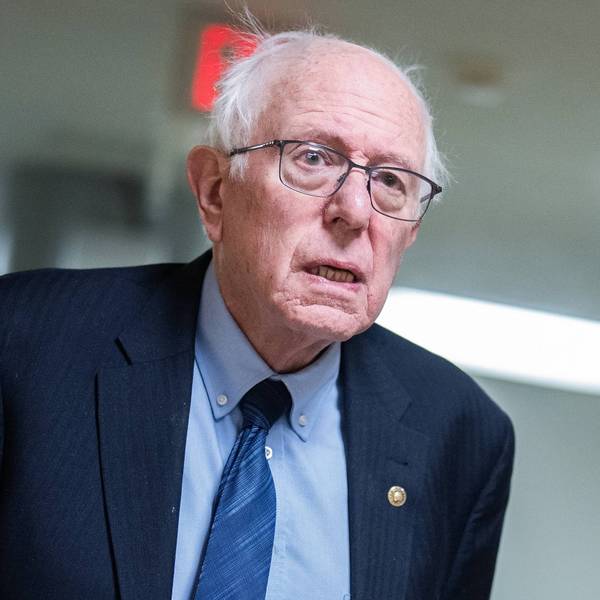Sen. Bernie Sanders (I-Vt.) strongly pushed back against Starbucks chairman Howard Schultz's argument--heard for years from centrist Democrats and Republicans, despite a wealth of evidence to the contrary--that a Medicare for All system would be prohibitively expensive for the United States and is not a "realistic" proposal.
"I think his comment is dead wrong," Sanders told Chris Cuomo on CNN Thursday night. "You have a guy who thinks that the United States apparently should remain the only major country on earth not to guarantee healthcare to all people."
Watch:
Schultz's comments came days after he announced he would step down as chairman of his $23 billion international coffee chain, fueling rumors that he may run for president in 2020.
"It concerns me that so many voices within the Democratic Party are going so far to the left," Schultz, who has been a major Democratic donor, told CNBC on Tuesday. "I say to myself, 'How are we going to pay for these things,' in terms of things like single payer, people espousing the fact that the government is going to give everyone a job. I don't think that's something realistic. I think we got to get away from these falsehoods and start talking about the truth and not false promises."
Despite Schultz's concern that Sanders's outspoken support for Medicare for All is indicative of a worldview that is out of touch with the American public, polls have found that a growing number of Americans support universal healthcare.
You should not have to choose between saving money on premiums while hoping you don't get sick, or having less money each week to pay rent just in case you do get sick. You wouldn't have to make that decision under single payer, which Schultz opposes, from his $25 million house. --Libby Watson, Splinter News
A Washington Post/Kaiser Family Foundation poll found earlier this year that 51 percent of the general public and about three-quarters of Democratic respondents supported a national, government-funded health plan.
Among Democrats who are rumored to be running for president in 2020, Schultz's disdain for bold progressive initiatives puts him in the minority.
Suspected contenders including Sen. Elizabeth Warren (D-Mass.), Kirsten Gillibrand (D-N.Y.), Kamala Harris (D-Calif.), and Cory Booker (D-N.J.) have all joined Sanders in co-sponsoring his Medicare for All bill.
"There is no mathematical reason why the U.S. government cannot 'afford' single-payer healthcare," wrote Eric Levitz at New York magazine on Thursday. "America has a higher per-capita GDP than Denmark, Canada, France, the United Kingdom, and virtually all other European and Asian nations that boast universal health insurance systems. There is no question that America has the means to ensure that all of its residents have high-quality, affordable healthcare. The fact that the U.S. declines to do so is the product of political choices not technical necessities."
Should Schultz run for president in 2020, he will likely promote his decision to offer health insurance to part-time employees at Starbucks, predicted Libby Watson at Splinter News. But with deductibles of $3,000 to $6,000 for the company's least expensive plan, the company's offering is "a massive indictment of America's private health insurance system, and something that would vanish under single payer."
"You should not have to pay out-of-pocket for your healthcare at all, particularly while billionaires are a thing; you should not have to choose between saving money on premiums while hoping you don't get sick, or having less money each week to pay rent just in case you do get sick," wrote Watson. "You wouldn't have to make that decision under single payer, which Schultz opposes, from his $25 million house."




